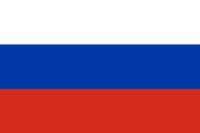
BASF's Rheovis® range transitions to bio-based Ethyl Acrylate (EA)
2025-06-17 08:40
- Rheovis® range produced at Ludwigshafen and Bradford sites now using bio-based ethyl acrylate
- Rheovis® range with elevated bio-based content and reduced Product Carbon Footprint
- Performance identical to former fossil feedstock-based version
Ludwigshafen, Germany – BASF, a global leader in the supply of additives to the coatings industry has completed the transition to bio-based Ethyl Acrylate (EA) for its Rheovis® range manufactured at Ludwigshafen and Bradford sites. Now, the Rheovis® range has a 14C-traceable biogenic content of up to 35% according to the ASTM D6866-18 analytical standard and a reduced Product Carbon Footprint (PCF1) of up to 30% compared to versions based on fossil feedstock. This development underlines BASF’s commitment to support customers in achieving their sustainability goals. The chemical composition and technical specifications of the new bio-based products remain unchanged.
Sylvain Pascal Huguenard, Vice President of Global Business Management for Additives, BASF, commented “This feedstock switch underlines BASF Additives’ commitment to enable formulators to complete their green transition while ensuring supply reliability and efficiency. BASF’s optimized process and Verbund concept are key levers to ensure further reduction of our Product Carbon Footprint (PCF).”
Joachim Burger, Head of Sales, Additives EMEA, BASF added, “Built on BASF’s commitment to sustainable solutions, our upgraded bio-based Rheovis® products will support the development of more sustainable products. We are excited to be part of this journey with formulators and will continue to formulate the future together.”
Our recently launched HASE rheology modifiers, the biocide-free Rheovis® HS 1101 and Rheovis® HS 1153 have been intentionally developed with this higher biogenic content, providing customers with improved performance and sustainability features. In addition to the 14C-traceable biobased content, the BASF Biomass Balance (BMB) approach can be applied to further reduce the Product Carbon Footprint (PCF) of a product.
BASF offers a comprehensive portfolio of bio-based raw materials, providing solutions for various applications. This enables formulators to improve the biogenic share of their products and develop differentiated offerings that cannot be achieved with fossil resources.
1 The product carbon footprint (PCF) calculations follow the requirements and guidance given by ISO 14067:2018. In a methodology review, TüV Rheinland has confirmed that the PCF (SCOTT) methodology developed and used by BASF SE is scientifically-based, is in accordance with ISO 14067:2018 and the Together for Sustainability PCF Guideline and reflects the state of the art (ID-Nr. 0000080389: BASF SE - Certipedia). TüV Rheinland also confirms that the calculation procedure of Biomass Balance (BMB) product carbon footprints and associated PCF reduction follow conventional LCA procedure as described in ISO 14067 and Together for Sustainability (TfS) Guideline.
MORE HZinfo
- Investing Tens of Millions To Build R&D Center: Dowill Paints Strengthens Green Innovation In Marine Coatings
- Solidifying its marine coatings core, Dowill Paints accelerates deploying "green coating" solutions across diverse sectors via strategic capacity and tech upgrades.
-
2025-08-01
- Syensqo Releases Second Quarter 2025 Results
- Underlying EBITDA of €335 million increased 8% sequentially with improved margin in core segments; FY 2025 outlook updated for FX and tariffs.
-
2025-08-01
- BASF Group Releases Q2 2025 Financial Results
- In the second quarter of 2025, BASF generated EBITDA before special items of around €1.8 billion.
-
2025-08-01


 English
English 简体中文
简体中文 Русский
Русский إنجليزي
إنجليزي




